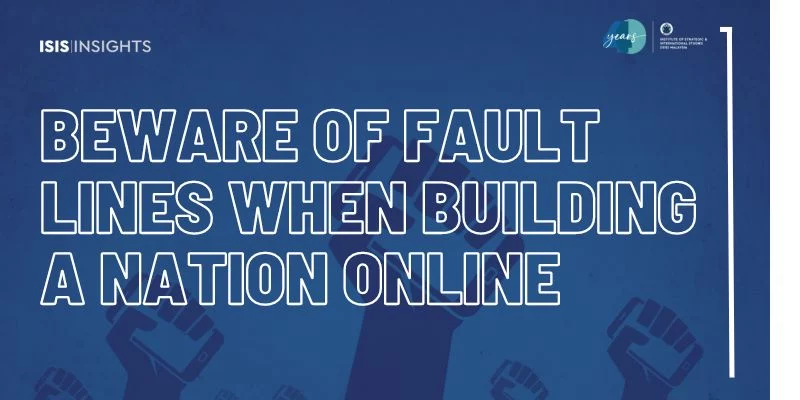Internet can help raise political awareness but can become manipulative tool in wrong hands
THE moments after a major incident are a test of a nation’s resilience. For instance, the national emergency declared by the Muhyiddin administration to combat Covid-19 saw Malaysians banding together online via the #KitaJagaKita campaign. #KitaJagaKita began as a social responsibility campaign but evolved into means of distributing aid and sharing tips for staying at home.
However, societal resilience can be tested over a long period. For instance, the death of a fireman during riots at the Sri Maha Mariamman temple in 2018 was exploited in a rally to defend the “sovereignty of Islam” and drove militants to target Malaysia’s social fabric. Both rally and thwarted militant attack occurred a year after the fireman’s passing, alluding to the significance of the incident, the fragility of Malaysian racial tensions and internet memory.
#KitaJagaKita and the outcome from Muhammad Adib Mohd Kassim’s death are at two ends of the resilience spectrum.
The internet can be a tool to promote democracy and national stability. It promises vast resources for information, allows every user equal access as publisher, widens freedom to associate in forums and develops newer mechanisms for political participation – all of which are useful for liberal democracy.
Despite that, the internet is not pristine. It was used as a tool to organise revolutionary movements, such as the Arab spring but it could also spread fear and hate. As the internet could educate and inform, it can also mislead, encourage divisive sentiments or contain subtle threats. The logic layer of the internet can tailor suggestions, whether for products, friends or posts with similar ideas which can polarise societies further.
Online public space and democracy
Public discourse is part and parcel of nation-building where discussions on policies and identity should contribute to societal resilience and progress. German philosopher Jurgen Habermas’ concept of the ideal speech hinges on the person as a rational being who would reach cognitive understanding though arguments, validation and the identification as well as correction of mistakes. There are also ideas which state that democracy requires information flows and public debate autonomous from both state and corporate power, especially for democratic decision-making.
In nations struggling with critical discourse, arguments and questions for policy-making can devolve into conflations of identity, accusations of disloyalty or challenges to authority. Thus, arguments in the digital public space may not complete the democratic decision-making route, as conversations can be detracted by personal attacks, victim-blaming and misinformation cycles.
What is needed is the ability to deal with discomfort when confronted with opposing views and disagreements while staying the course for evidence-based policy discussions, which hinge on policies building digital citizenship. The purpose is to harness the positives of the internet for political purposes without fatiguing any party that may drive people into the echo chambers regarded as safe spaces.
To do so, understanding the idiosyncrasies of communication and Malaysia’s information environment is necessary. Manipulative techniques crafted by inauthentic behaviours from cybertroopers, bots and algorithms do exist. Munira Mustaffa used social networking analyses for a sample of activity during the 15th general election. Centre for Independent Journalism mapped hate speech across social media platforms in a similar timeframe.
In this landscape of deliberate stimulation, posts and entries that may be sincere in raising awareness and discussions can appear incendiary when tensions are high. This is the situation for Zulfadzli Halim or twitter user @bumilangit, who was arrested over attempts to raise awareness of the fear-mongering occurring online. With a history where the swiftest resolution to tensions is content removal and censorship, navigating the path of freedom of expression, public discourse and public anxiety can be challenging.
Towards political participation, ideal public sphere
There is much work done to map Malaysia’s information environment. Harris Zainul and the Centre, a think-tank founded by former health minister Khairy Jamaluddin, have written on means and ways forward to regulate free speech, whether designating social media platforms as public utilities or rethinking hate speech management.
However, gaps in knowledge do exist, especially those that could visualise ideal public discourse and determine the threshold for the political process. A study presented to the Australian parliament in 1998, for instance, maps how the internet is used by political parties and could be harnessed to increase political processes.
Malaysia isn’t alone trying to navigate ways to build a nation online. However, its information environment is tied to Malaysia’s cultural contexts and media environment. Planning the way forwards may require an understanding of the ideal outcome for online discourse in Malaysia, especially where politics, democratic maturity and learning can occur.





